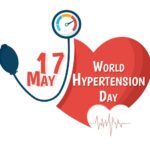India
healthysoch
New Delhi, December 31, 2020 :
As people around the world celebrated New Year’s Eve 12 months ago, a new global threat emerged.
Since that moment, the COVID-19 pandemic has taken so many lives and caused massive disruption to families, societies and economies all over the world. But it also triggered the fastest and most wide-reaching response to a global health emergency in human history.
The hallmarks of this response have been an unparalleled mobilization of science, a search for solutions and a commitment to global solidarity. Acts of generosity, large and small, equipped hospitals with the tools that health workers needed to stay safe and care for their patients. Outpourings of kindness have helped society’s most vulnerable through troubled times.
Vaccines, therapeutics and diagnostics have been developed and rolled out, at record speed, thanks to collaborations including the Access to COVID-19 Tools Accelerator. Equity is the essence of the ACT Accelerator, and its vaccine arm, COVAX, which has secured access to 2 billion doses of promising vaccine candidates.
Vaccines offer great hope to turn the tide of the pandemic. But to protect the world, we must ensure that all people at risk everywhere – not just in countries who can afford vaccines – are immunized.
To do this, COVAX needs just over 4 billion US dollars urgently to buy vaccines for low- and lower-middle income countries.This is the challenge we must rise to in the new year.
My brothers and sisters, the events of 2020 have provided telling lessons, and reminders, for us all to take into 2021.
First and foremost, 2020 has shown that governments must increase investment in public health, from funding access to COVID vaccines for all people, to making our systems better prepared to prevent and respond to the next, inevitable, pandemic. At the heart of this is investing in universal health coverage to make health for all a reality.
Second, as it will take time to vaccinate everyone against COVID, we must keep adhering to tried and tested measures that keep each and all of us safe. This means maintaining physical distance, wearing face masks, practicing hand and respiratory hygiene, avoiding crowded indoor places and meeting people outside.
These simple, yet effective measures will save lives and reduce the suffering that so many people encountered in 2020.
Third, and above all, we must commit to working together in solidarity, as a global community, to promote and protect health today, and in the future.
We have seen how divisions in politics and communities feed the virus and foment the crisis. But collaboration and partnership save lives and safeguard societies. In 2020, a health crisis of historic proportions showed us just how closely connected we all are. We saw how acts of kindness and care helped neighbors through times of great struggle.
But we also witnessed how acts of malice, and misinformation, caused avoidable harm. Going into 2021, we have a simple, yet profound, choice to make: Do we ignore the lessons of 2020 and allow insular, partisan approaches, conspiracy theories and attacks on science to prevail, resulting in unnecessary suffering to people’s health and society at large?
Or do we walk the last miles of this crisis together, helping each other along the way, from sharing vaccines fairly, to offering accurate advice, compassion and care to all who need, as one global family.
The choice is easy. There is light at the end of the tunnel, and we will get there by taking the path together. WHO stands with you – We Are Family and we are In This Together.
I wish you and your loved ones a peaceful, safe and healthy new year.
Author : Dr Tedros Adhanom Ghebreyesus, WHO Director-General
healthysoch







